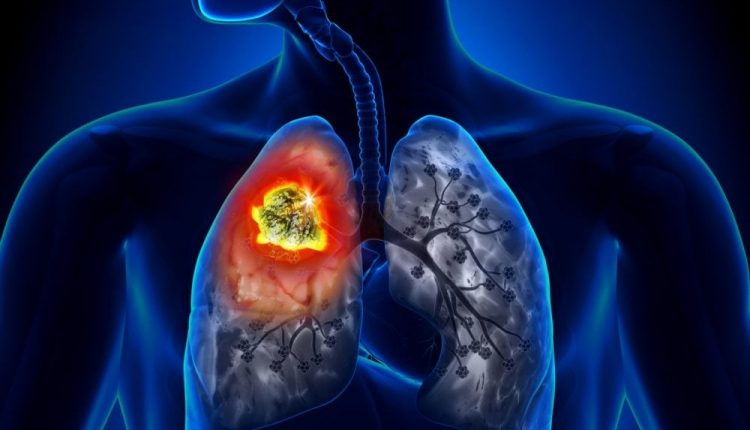
Small Cell Lung Cancer (SCLC): a carcinoma study from Vienna, Austria
Small cell lung cancer (SCLC) is a particularly aggressive tumour, which has so far been treated with standardised measures
Small cell lung carcinoma (SCLC), publication in Clinical and Translational Medicine
A study led by MedUni Vienna has shown for the first time that different SCLC subtypes have specific molecular characteristics, which is why those affected respond in different ways to cancer treatment.
This discovery, published in the Clinical and Translational Medicine journal, has opened up new options for the development of more personalised treatment for this cancer, which is characterised by an unusually high rate of mortality.
Earlier this year, a study by an international team of scientists led by MedUni Vienna indicated that small cell lung cancer (SCLC) is not a homogeneous type of cancer but is rather characterised by four subtypes that respond differently to treatment measures.
The researchers from Austria, Hungary, Brazil, Sweden and the Netherlands are highlighting that a single treatment method for SCLC is not effective with their current follow-up project.
Rather, the results of their comprehensive analyses provide the basis for new treatment approaches that can be tailored to the specific molecular characteristics of the respective subtypes.
SCLC, Specific Proteins for Targeted Treatment
In order to generate these results, the scientists analysed the entire protein composition (proteome landscape) of human SCLC cell lines.
Using their selected proteomic approach in combination with bioinformatic analyses, they achieved large-scale identification and quantification of proteins and ultimately the determination of specific molecular signatures for each subtype.
“The analytical approach we chose enabled us to quantify more than 10,000 proteins, several of which proved to be specific to a particular subtype,” explained study co-leader Karin Schelch from MedUni Vienna’s Department of Thoracic Surgery.
“These subtype-specific proteins provide an excellent basis for the development of targeted SCLC treatment.”
Molecular Signature as Diagnostic Marker
Small cell lung cancer affects about 15 percent of lung cancer patients.
This particularly aggressive tumour, which usually occurs in smokers, grows rapidly, has a high propensity for metastasis and a high mortality rate.
“Since conventional treatment for SCLC has reached its efficacy plateau, new personalised treatment interventions are required to improve survival rates,” emphasised study leader Balazs Döme from MedUni Vienna’s Department of Thoracic Surgery, head of the Translational Thoracic Oncology Programme.
Some of the new suptype-specific proteins identified in the study can be used not only as treatment targets but also as diagnostic markers.
Read Also
Emergency Live Even More…Live: Download The New Free App Of Your Newspaper For IOS And Android
Lung Cancer: Symptoms, Diagnosis And Prevention
Pancreatic Cancer: What Are The Characteristic Symptoms?
Chemotherapy: What It Is And When It Is Performed
Ovarian Cancer: Symptoms, Causes And Treatment
Breast Carcinoma: The Symptoms Of Breast Cancer
CAR-T: An Innovative Therapy For Lymphomas
What Is CAR-T And How Does CAR-T Work?
Radiotherapy: What It Is Used For And What The Effects Are
Pleuritis, Symptoms And Causes Of Pleural Inflammation
Pneumocystis Carinii Pneumonia: Clinical Picture And Diagnosis
Head And Neck Cancers: An Overview
A Guide To Chronic Obstructive Pulmonary Disease COPD
Surgical Management Of The Failed Airway: A Guide To Precutaneous
Thyroid Cancers: Types, Symptoms, Diagnosis
Pulmonary Emphysema: Causes, Symptoms, Diagnosis, Tests, Treatment
Binding With A ‘Messy’ Protein: How Nickel Becomes The Lung Killer
Atelectasis: Symptoms And Causes Of Collapsed Lung Areas



